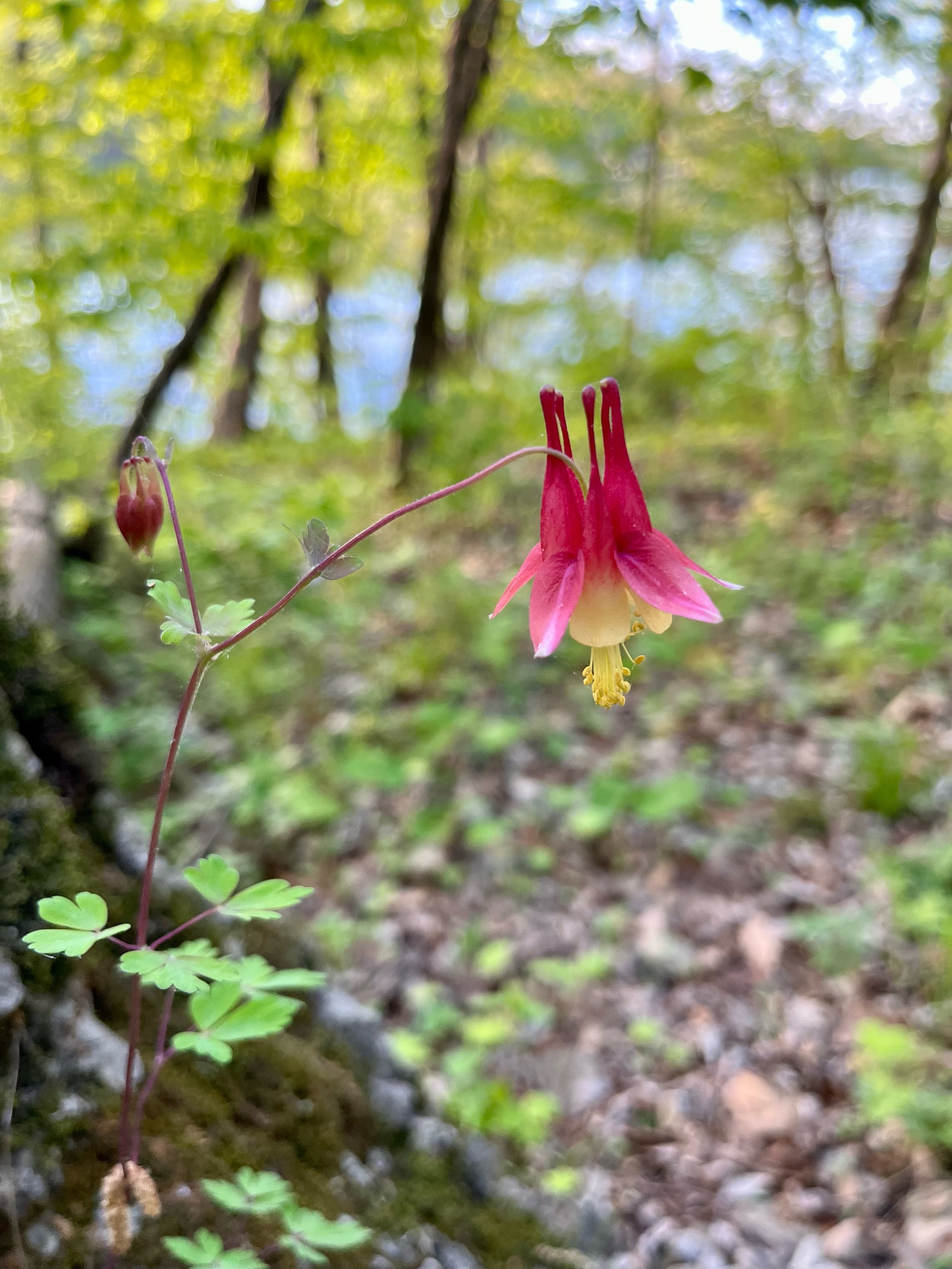Embracing Nature in DBT: How the Outdoors Support Emotional Regulation
Folks with extreme emotional responses, self-destructive behaviors, emotional dysregulation, and fear of abandonment consistently over the lifespan may have Borderline Personality Disorder (BPD). Daily life is often full of negative emotions, substance abuse, and other connected mental illness. Previous entries have focused on how BPD can be treated successfully to empower instead of victimize. To strengthen instead of deplete. And to thrive instead of spiral. Dialectical Behavior Therapy (DBT) can be this lifeboat when all other help has failed. We've also learned numerous ways to navigate symptoms of BPD in other ways. One wildly underrated avenue to enhancing DBT effectiveness is embracing nature. Today's entry from us here at GOKC is going to dig into how nature and Nature Therapy in Kansas City, MO will help you keep a sense of stability through emotional regulation.
DBT Staples
DBT is the gold standard treatment for BPD. Developed by Dr. Marsha Linehan in the late 70s, DBT shifts the focus of responsibility back to the individual with masterful persistence. Being able to more effectively manage emotions is the name of the game here. There are countless coping skills taught by licensed mental health professionals practicing DBT. Next, DBT is based on the idea that 2 important factors contribute to BPD:
you are particularly emotionally vulnerable – for example, low levels of stress make you feel extremely anxious
you grew up in an environment where your emotions were dismissed by those around you – for example, a parent may have told you that you had no right to feel sad or you were just "being silly" if you complained of feelings of anxiety or stress
These 2 factors may cause you to fall into a negative cycle – you experience intense and upsetting emotions, yet feel guilty and worthless for having these emotions. Because of your upbringing, you think having these emotions makes you a bad person. These thoughts then lead to further upsetting emotions. The goal of DBT is to break this cycle by introducing 2 important concepts:
validation: accepting your emotions are valid, real, and acceptable
dialectics: a school of philosophy that says most things in life are rarely "black or white" and that it's important to be open to ideas and opinions that contradict your own
DBT Skills
There are a ton of effective skills taught within DBT by many therapists. We're going to chunk this into the 4 Modules while illustrating a skill or two in each:
Mindfulness: Here's an easy video definition from the source!
Wise Mind is a goal state where the rational and emotional minds meet. This is often described as the intuition or experiential knowledge that comes from lived experience beyond a rational construct or idea alone. Linehan described this as, "that part of each person that can know and experience truth. It is where the person knows something to be true or valid. It is almost always quiet. It has a certain peace. It is where the person knows something in a centered way."
Distress Tolerance: My simplistic approach to this concept is one's ability to experience distress without letting it completely wreck you. We all have a line that once crossed, we will be devastated beyond an easy rescue. Folks with BPD often become easily overwhelmed & need training in building up their distress tolerance.
Emotional Regulation Skills: Many therapy sessions focus on managing intense emotions & seeking inner peace. While perfect balance is not the goal, some level of regulation is. We do not want folks to be unable to come back to a baseline emotional state. This would eliminate any chance of finding their wise mind! There are many terrific emotional regulation skills. Below is a video of one of my favorites:
The Dandelion Story
Interpersonal Effectiveness: This seems pretty straightforward. It is! But just in case you forgot, easy to understand doesn't mean easy to implement.
There are three types of goals within relationships that all need attention and work within the DBT system:
Objective Effectiveness: obtain something you want
Relationship Effectiveness: maintain or improve a relationship
Self-Respect Effectiveness: maintain your self-respect
7 Ways Natural Environments Soothe & Support Emotional Regulation
Keeps us in the Present Moment: Being outdoors provides many benefits to our ability to be present. One major contributor is in our improved focus when outside. Whether it's a soothing sensation from the chilled fresh air or the serotonin release we get seeing the color green, nature has a way of enhancing focus in ways that will help us find our wise mind. This is a foundational construct within DBT & the natural world can be a super-highway to finding it!
Green Spaces Elicit Positive Emotions: I already mentioned how the 'happy hormone' Serotonin is released when we view green. Serotonin is also released when we dig in the dirt - skin contact with soil is linked to serotonin release due to specific interaction with friendly bacteria.
Natural Settings Reduce Anger: Cortisol reduction is a byproduct of being in nature. And who is successful at anger management when stressed? Intentional recognition of our senses outdoors also expands on calming sensations in our body, which help to lower anger levels. We will continue to have a better chance of finding our baseline.
The Natural World Improves Quality of Life: We could go anywhere with this one, but I'll just say there is real value in finding connectivity within nature. I believe that consistent time in nature will result in higher connectivity to ourselves, others & the natural world. These connections are consistent with interpersonal effectiveness as a foundational module of DBT.
Nature Therapy can Include Mindfulness Practices: A common misconception of Nature Therapy is that it's mindfulness outside. This couldn't be more wrong. Nature therapy is about the specific focus and commitment to noticing the connection between the natural world and ourselves. Mindfulness requires we do NOT focus specifically in one way or another, rather we focus on just being. Regardless of my soapbox moment, mindfulness practices are often enhanced when done in natural settings due to the calming and under-stimulating environment compared to indoors.
Nature's Beauty Decreases Symptoms of Anxiety: Being outdoors has been indicated to lower brain activation in the areas that are responsible for negative thoughts. Anxiety is typically riddled with negativity & movement in nature is an effective way to counter anxieties of many types. Cortisol reduction also leads to a reduction of stress which sets the table for more effective management of anxiety.
Connection to Nature Promotes Mental Well-Being: Happiness Boosts! Decreased Stress! Reduced strain on our Cardiovascular System & Blood Pressure Reduction! These are all examples of how nature promotes well-being mentally and in our bodies. Sign me up for all of this, please!
Learn Emotional Regulation through Nature Therapy in Kansas City, MO Today!
Emotional Regulation is not an easy task. Especially for those receiving DBT treatment. The blessing & curse of DBT is that it's heavily skills-based. If you find difficulty sticking to your plan of skills, homework from a full DBT Program, or being so activated that you can't even practice skills then consider the benefits of walking out your door. Nature will always be accessible & welcoming to you. I'd strongly encourage you to utilize Mother Nature's availability to your advantage during all times of the year. Even during our bitter mid-western winters. With the right layers & mindset, a little time outside in all the seasons is wonderful for you. You will be able to thrive in your wise mind. Keep going! Follow the steps below to see how Nature Therapy in Kansas City, MO with GOKC can help you:
Work with a compassionate nature therapist.
Learn emotional regulation skills to live a more balanced life!
Other Therapy Services Offered at GOKC in Brookside, Kansas City, and throughout MO + Kansas
At GOKC, we offer a range of services designed to promote healing and well-being outside of Nature Therapy in Kansas City, MO. Our services include DBT Treatment, Online Therapy, and EMDR for Trauma Recovery. Additionally, we offer Art Therapy, PTSD Treatment, and Somatic Experiencing. Whether you're looking to address specific mental health issues or seeking a deeper connection with yourself, GOKC can help you!





